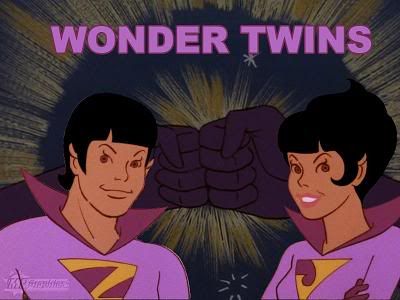Brilliand wrote:nameless wrote:Is it that important for you to be 'right'? You already know everything? Your posts certainly give that impression...
This again? Sorry, I've had trouble with this impression of me in the past... and this time, I'm not going to act more uncertain than I am because my certainty annoys people.
Great, don't read this one either;
The Certainty Bias: A Potentially Dangerous Mental Flaw
"If a man dare teach, he must never cease to learn."
Stomping about making pronouncements of the "way it is", and refusing to admit critical investigation into your 'beliefs'/ego is not philosophy, it is religion. Religion is where people 'know the Truth' and aren't sidetracked by facts..)
Rest assured that I am wrong sometimes and I do take in ideas from others' arguments; I simply know from past experience that after reading your articles, I will still disagree with you, and I won't be able to remember any of the individual points that I disagreed with (I won't be able to say much more than "those articles were horrible").
nameless wrote:I didn't offer 30 pages (obviously you didnt't look at anything), and the reading isn't that difficult.
I clicked on all three links; one was 12 pages, one was 14, and one was a whole archive of articles (I assumed there were at least four pages there).[/quote]
Well, dude, I hope that you didn't waste your time reading any of it.
I was in a Creation vs. Evolution debate once (online) where we just threw scholarly links at each other; I doubt either one of us really understood what we were talking about.
Well, if neither of you knew what you were talking about, it must have been quite the comic 'debate'.
If you have nothing that you can learn, then ignore any offered information. Right? Whatever. If you are going to deliberately ignore any evidence in conflict with your beliefs, we cannot have any sort of discussion. There is nothing that we need 'debate'. I was merely, I repeat, generously, offering you food for thought. If 'unpalatable', or too 'tough', ignore it and stomp on with your pronouncements of "how it is for all of us", and I'll simply ignore your posts (knowing your lack of 'information' and current understanding and encrusted 'beliefs'... Willful ignorance).
... every argument must be presented by the arguer.
Homey don't play by your rules! I 'presented', you ignored, I leave the discussion...
nameless wrote:Brilliand wrote:I meant that all external behavior of humans
Exactly what do you mean by "external behavior"?
"External" to what? The Universe? Perception?
External to the human with the behavior... in other words, perceivable by humans other than the one whose behavior is being perceived.
There is not (evidence of) any thing 'external' to the perceiver. There is nothing 'external' to the perception of a Conscious Perspective.
But I can see how it 'appears' that there is.
But I won't bore you with any data/evidence or links to good thoughtful examinations of the issue...
Well, happy trails
nameless out








































